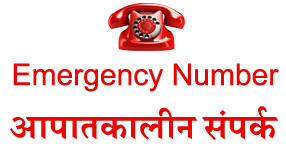Agenda Item 2(a): Nuclear Safety Review - 2018
INTERNATIONAL ATOMIC ENERGY AGENCY
BOARD OF GOVERNORS’ MEETINGS
(March 5 - 9, 2018)
Agenda Item 2(a): Nuclear Safety Review - 2018
Statement By The Governor For India
Ambassador Renu Pall
Madam Chair,
We associate ourselves with the statement delivered by the distinguished Representative of Iran on behalf of G-77 and China.
We would like to appreciate the Agency’s efforts towards strengthening safety in nuclear installations; improving radiation, transport and waste safety; enhancing emergency preparedness and response, strengthening civil liability for nuclear damage and activities of the Commission on Safety Standards.
We would like to reiterate that the IAEA Action Plan on Nuclear Safety clearly recognizes that the primary responsibility for safety lies with the member state.
India is committed to implement the IAEA Action Plan on Nuclear Safety. India’s own initiatives have been generally in line with the Action Plan and have strong international linkages in the area of nuclear safety.
India has been participating in several International initiatives pertaining to lessons learned from the Fukushima accident. Apart from the peer review process of the CNS, Indian experts have been sharing findings of our safety reviews with experts from other countries in a number of fora, which have shown that the safety enhancement measures being implemented in the Indian NPPs are in line with the best practices elsewhere in the world.
The Fukushima accident has led to focus on the safety of nuclear installations against extreme natural hazards, severe accident management and emergency preparedness and response. My delegation takes note of the issuance of the revised Safety Requirements publication entitled Safety of Nuclear Fuel Cycle Facilities, which takes into account lessons from the Fukushima Daiichi accident.
India has taken steps to incorporate the lessons learned from the Fukushima accident into its regulatory requirements as well, with respect to siting, design, operation and maintenance of NPPs, including emergency preparedness and response. These requirements are in line with the latest IAEA standards. The regulatory practices in India along with the enhanced safety requirements address the objectives of the Vienna Declaration on Nuclear Safety.
India considers the role of nuclear power as vital for long term energy security and sustainable development of the country and remains committed to implementing the highest level of safety at its nuclear facilities. India has a robust Safety culture and safety issues are monitored under stringent guidelines set up by the Atomic Energy Regulatory Board. We have been reporting the progress in the National Reports to the Review Meetings of the Contracting Parties of the Convention on Nuclear Safety (CNS) and actively participated in the 7th Review Meeting of CNS held in March-April 2017.
Madam Chair,
We take note of the implementation of the IAEA Code of Conduct on the Safety and Security of Radioactive Sources and the supplementary Guidance on the Import and Export of Radioactive Sources and Guidance on the Management of Disused Radioactive Sources. Requirements for ensuring the safe transport of radioactive material in India is based on the IAEA regulations for the safe transport of radioactive material, 2012 Edition. Furthermore, in order to enhance the effective implementation of the transport regulations in India, the Atomic Energy Regulatory Board coordinates with various concerned ministries responsible for transport of dangerous goods, including radioactive material.
We take note of the issuance of IAEA requirements on Preparedness and Response for a Nuclear or Radiological Emergency (IAEA Safety Standards Series No. GSR Part 7) and we are in the process of aligning our national requirements with the IAEA requirements.
India is Party to the ‘Convention on Assistance in the Case of a Nuclear Accident or Radiological Emergency’ and we participated in ConvEx-2 and ConvEx-3 exercises conducted by the IAEA last year. India successfully demonstrated its capabilities to meet Convention requirements under different exercise scenarios and could offer its assistance as & when asked for during these exercises in practically all expertise domains. India would continue to assist by way of providing technical experts for responding to any emergency situation, as and when specific requests are received from the IAEA. India will also extend training facilities through its newly established Global Centre for Nuclear Energy Partnership.
With these comments, Madam Chair, we take note of the Nuclear Safety Review - 2018, as contained in the document GOV/2018/4. We also take note of the draft Safety requirement: Regulation for Safe Transport of Radioactive material, 2018 edition as contained in the document GOV/2018/3.
Thank You.















